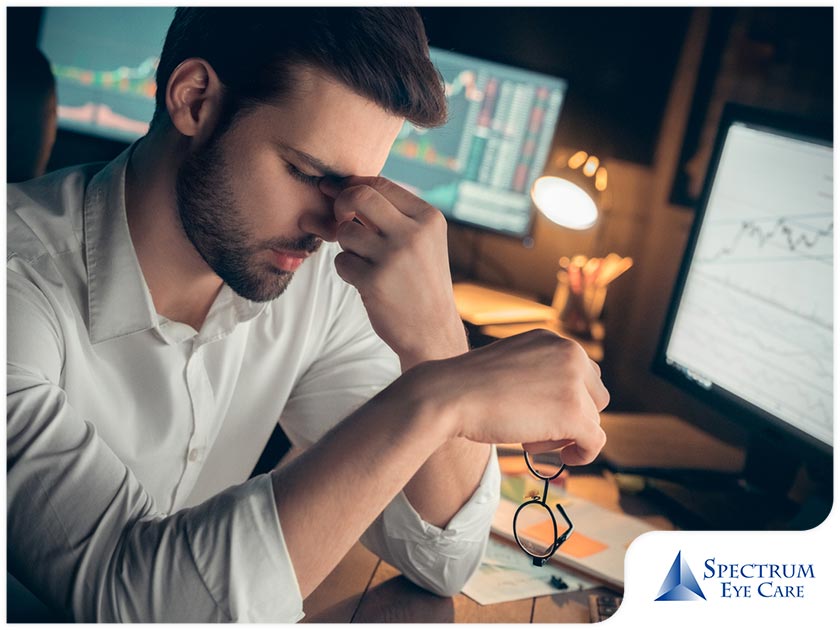There have been numerous studies connecting poor sleeping habits with a number of illnesses. However, one often overlooked effect lack of sleep can have has to do with eye care. Losing an hour of sleep every day leads to the development of eye diseases and can even exacerbate existing vision problems you may already have.
According to the Centers for Disease Control and Prevention (CDC), roughly 30% of the country’s workforce sleeps for less than six hours every day. That is approximately 40 million Americans losing sleep for one reason or another. Let our experts at Spectrum Eye Care show you the effects poor sleep can have on your eyes and eyesight.
What Lack of Sleep Can Do to Your Eyes
The effects of sleep deprivation extend to more than just dark circles under your eyes. If you’re already wearing eyeglasses for vision correction, losing essential sleeping hours can exacerbate your eye condition. This means you may need stronger and stronger prescriptions as the years progress. Make sure you schedule regular eye exams with your doctor to help you understand more about your eyesight and what you can do to help take better care of your eyes.
How Many Hours Should You Sleep
On average, your eyes need about five hours every night to properly recuperate from the stress of the previous day. Any hour lost from this minimum requirement can have physical effects on the eyes themselves. One of the most common symptoms is myokymia or eye twitches. Lack of sleep can cause your eyelids to twitch involuntarily and interfere with your vision.
Long Term Effects
Consult with your eye doctor should you notice any changes in your eyesight caused by poor sleeping habits. Over time, lack of sleep can thin down the lining of the blood vessels in your eyes, causing them to pop under extreme stress and strain. More common long-term effects of lack of sleep are dry eyes, redness, and irritation.
At Spectrum Eye Care, we are your leading provider of services. Give us a call at (704) 543-9000 or fill out our contact form to schedule a consultation with our eye care doctors today.

